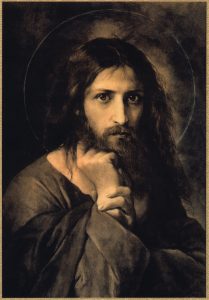The earthly ministry of our Lord Jesus Christ is radiant with compassion, a divine quality inseparable from His very Person, for He is Love Incarnate. This compassion is an eternal aspect of the uncreated energies of God, made manifest in the Theanthropos—God-Man—Jesus Christ. In the Gospels, our Lord is often described as being “moved with compassion”, a word which conveys a visceral stirring of divine love in response to human suffering. “And seeing the multitudes, he had compassion on them: because they were distressed, and lying like sheep that have no shepherd” (Matthew 9:36). This compassion is kenotic—self-emptying—and seeks not personal admiration but communion. Every healing, exorcism, and every act of mercy in the Gospels is a theophany, a revealing of the living God, as the One who stoops down to lift up the fallen.
Christ’s compassion is not limited to physical affliction, though it does not ignore the body, for the body itself is sacred and destined for resurrection. In Orthodox anthropology, the human being is a psychosomatic unity—soul and body are not at odds but interwoven, both created by God and both redeemed by Christ. Thus, when He healed the blind, cleansed the lepers, and restored the paralytic, He was not addressing superficial ailments, but revealing the holistic nature of salvation. However, His mercy reaches deeper still, to the noetic heart of man—the innermost chamber of the soul where true communion with God is either sustained or broken. It is here that the deepest wounds fester, wounds invisible to the world yet more damaging than any bodily infirmity—pride, envy, despair, hardness of heart, and separation from the Source of life.
Continue reading →
 I have been receiving these types of email for a few years now. I usually do not respond to most of them because of the filth they contain.
I have been receiving these types of email for a few years now. I usually do not respond to most of them because of the filth they contain.